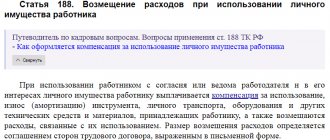A judicial fine is a type of monetary penalty that can be imposed by a court on court participants who have violated the requirements of civil procedural legislation. Currently, this is the most common penalty, determined for violation of the rules of conduct in court, as well as contempt of court, which can be applied to the accused, the defendant, and various officials. The cases in which bailiffs can impose fines, as well as the amount of such fines, are fully stipulated by the Civil Code.
In what cases is a court fine imposed?
A court fine can be imposed on a participant in a proceeding in a number of cases. In particular, it is most often prescribed:
- in case of violation of order directly at the court hearing;
- in case of failure to appear at the court itself (in the event that the reasons for the person’s absence at the meeting are not recognized by the court as valid), about which the person was previously notified in accordance with the main procedure;
- in case of violation of a court-imposed ban on certain actions (usually such a ban applies specifically to the defendant);
- failure to provide written evidence without a valid reason;
- failure to provide the court with material evidence (also without good reason on the part of the accused or other persons participating in the case);
- in case of loss of a document entrusted to a person by the court (imposed directly on the official);
- in case of refusal to comply with the requirements specified in Articles 381, 388 and 390 of the Code of Civil Procedure;
- upon refusal to comply with court requirements.
Loan secured by PTS CashDrive, Person. No. 18-034-75-009039
from 0.05%
rate per day
up to 1 million
90 – 2,555 days
Take out a loan
Attention!
A judicial fine is a monetary penalty imposed by a court upon release from criminal liability.
Conditions for imposing a judicial fine (Article 76.2 of the Criminal Code of the Russian Federation):
1) the crime must be committed by a person for the first time, this means that the person
a) who has committed one or more crimes, none of which he has previously been convicted of;
b) a previous sentence in respect of which at the time of the commission of a new crime did not enter into legal force;
c) a previous sentence in respect of which at the time of the commission of a new crime came into legal force, but at the time of its commission one of the circumstances had occurred that annulled the legal consequences of bringing a person to criminal responsibility (for example, the person was released from serving a sentence due to the expiration of the statute of limitations execution of a previous conviction, expungement or expungement of a criminal record);
d) the previous sentence in respect of which came into force, but at the time of the trial the criminality of the act for which the person was convicted was eliminated;
e) who was previously exempt from criminal liability.
2) the crime committed must be classified as minor or moderate.
Crimes classified as minor are intentional and careless acts, the maximum punishment for which does not exceed three years.
Crimes classified as medium gravity are intentional acts, the maximum punishment for which does not exceed five years, and careless acts, the maximum punishment for which exceeds three years.
3) the damage caused by the crime must be compensated or the damage made up for in another way.
Making amends for damage means property, including monetary, compensation for moral damage, providing any assistance to the victim, apologizing to him, as well as taking other measures aimed at restoring the rights of the victim, the legitimate interests of the individual, society and the state, violated as a result of the crime.
Compensation for damage or other redress of harm caused by a crime can be made not only directly by the person who committed the crime, but also at his request (with his consent) by other persons, for example, relatives, the legal representative of a minor, etc.
In any case, methods of compensating for damage or otherwise making amends for the harm caused by a crime must be legal and not infringe the rights of third parties.
Promises, as well as various kinds of obligations of the person who committed the crime, to compensate for damage or make amends for harm in the future are not circumstances that provide grounds for releasing this person from criminal liability.
The procedure for imposing a judicial fine is regulated by the requirements of Articles 446.1-446.3 of the Code of Criminal Procedure of the Russian Federation.
If the conditions for imposing a judicial fine are met, the investigator, with the consent of the head of the investigative body, or the inquirer, with the consent of the prosecutor, makes a decision to initiate a petition before the court to terminate the criminal case or criminal prosecution against a suspect or accused of committing a crime of minor or medium gravity and to assign criminal measures to this person. -legal in the form of a court fine.
The petition, together with the materials of the criminal case, is sent to the court, which considers the petition no later than 10 days from the date of its receipt with the obligatory participation of the suspect or accused, the defense lawyer, if the latter is involved in the criminal case, the victim and (or) his legal representative, representative, prosecutor.
Failure to appear without good reason by the parties, who were promptly notified of the time of the court hearing, is not an obstacle to the consideration of the petition, with the exception of cases of failure of the person in respect of whom the issue of termination of the criminal case or criminal prosecution is being considered.
Based on the results of consideration of the petition, the court has the right to make one of the following decisions:
- on satisfying a petition to terminate a criminal case or criminal prosecution and assigning a criminal measure to the person
nature in the form of a court fine. In this case, the court makes a decision to terminate the criminal case or criminal prosecution and to impose a criminal law measure on the defendant in the form of a court fine, which indicates the amount of the court fine, the procedure and deadline for its payment.
- to refuse to satisfy such a request with the return of the criminal case materials to the head of the investigative body or the prosecutor for further proceedings in the case.
A person in respect of whom a decision has been made to terminate a criminal case and to impose a court fine must provide the bailiff with information about its payment within 10 days after the expiration of the period established for payment of the court fine.
If a person fails to pay a court fine, the court, upon the recommendation of the bailiff, cancels the decision to terminate the criminal case or criminal prosecution and impose a criminal law measure in the form of a court fine and forwards the materials to the head of the investigative body or the prosecutor. Further criminal proceedings are carried out in accordance with the general procedure (Article 446.5 of the Code of Criminal Procedure of the Russian Federation).
How and when are court fines paid?
Within 10 days from the date of receipt of the ruling on the imposition of a fine, you can appeal to the court with a request to reduce its amount or add up the fine. If you agree with the fine, you must pay the fine within the same period. If you do not do this, you will automatically have a debt to the court, which you will be required to repay. If payment of court fines is not made within the prescribed period, 10 days after receiving a determination on such a fine, it will have to be collected forcibly.
Please note: if an additional case is initiated to collect a fine, you will only have 5 days to pay it off, otherwise the fines will be collected by bailiffs. They will be forced to describe the property for the amount specified in the definition, and then confiscate the property.
Everything about criminal cases
The second type of fine is a fine imposed as basicpunishment and calculated in a fixed amount.
— let’s immediately distinguish this type of fine from the third type (a fine in a multiple amount). It’s very easy to check this, look at the List of Articles
providing for a fine in multiple amounts.
- if you are convicted under an article not included in the specified list, it means that your fine is assigned in a fixed amount and belongs to the second type.
What happens if you fail to pay?
?
If a fine is assigned to you as the main punishment in a fixed amount of money, then in case of non-payment:
Url Additional information:
- clause 5.2
Plenum No. 21 fine in a fixed amount - replaced by another type of punishment
a) the fine is replaced by another type of punishment ( clause 5.2
Plenum No. 21).
For example, a fine can be replaced with correctional labor
).
Url Additional information:
- Part 5 46 Criminal Code
but the fine cannot be replaced by imprisonment
b) important: replacement with imprisonment in this case is impossible ( Part 5 46 of the Criminal Code
).
In case of malicious evasion of payment, it is possible to replace the fine with another type of punishment (for example, correctional labor
).
Url Additional information:
- clause 5.9
Plenum No. 21 replacement with imprisonment for evading work
c) however, there is still a way to get imprisonment. If, after replacing the fine with compulsory/corrective labor or restriction of freedom, the convicted person no longer evades them, then the court may replace them with imprisonment ( clause 5.9
Plenum No. 21).
The type and duration of other punishment in this case are determined based on the amount of the unpaid fine.
Term of other punishment
- if the fine is replaced by another punishment
(except for imprisonment), then what will be the amount of the new punishment?
It is determined based on the amount of the unpaid fine ( clause 5.2
of the Plenum No. 21).
Formula:
But there is no exact formula for calculating the term of a new sentence. The fact is that existing formulas for calculating the term do not apply to the fine.
- Part 1 71 of the Criminal Code
the formula for calculating terms is when adding up punishments.
- part 2 72 of the Criminal Code
the formula for counting terms is when replacing a sentence.
Url Additional information:
- part 2 71 of the Criminal Code
do not stack with others - fine, deprivation of rights, titles
- but these formulas do not apply to the fine, since part 2 of 71 of the Criminal Code
it is indicated that three types of punishment (including a fine) do not stack with others. That is, for a fine there is no “table of equivalents”, something like “10,000 rubles. = 1 day of imprisonment.”
The size is determined by judicial practice
The court will determine the type and amount of the new punishment based on established judicial practice. This actually means that the punishment will be imposed taking into account:
Url Additional information:
- clause 5.2
Plenum No. 21, the term of other punishment depends on the amount of unpaid
A)
the amount of the unpaid fine (as specified in
clause 5.2
of Plenum No. 21).
Url Additional information:
All aspects of criminal punishment
Purpose
punishments - all
mitigating
,
aggravating
and
neutral
factors
b)
all factors of punishment, as in a normal sentencing (see
List of factors
taken into account for punishment).
Who pays the fine if the car was rented or leased
By default, all fines from cameras are sent to the person to whom the car is registered.
When renting or leasing, a car can be registered both to the leasing company and to the lessee/lessee. Fines will be sent to the person whose details are indicated in the “Owner” column.
On the left is the STS of the leasing company. The car is registered to her, fines will also come to her. On the right, in the “Owner” column, the lessee is indicated; in the STS there is a special note indicating that the car is leased. Fines will be sent to the lessee
In our history, the distributor registered the cars in his name. He received fines of 12 million rubles, although the cars were actually used by the renter. In such a situation, the only way not to pay the fine is to appeal it to the court or department that issued the decision.
Step-by-step instructions: what to do if your rented car receives a fine
- Pay the fine at a discount - in case there are doubts that it will be possible to appeal.
- File a complaint with the agency that issued the fine. His details are indicated in the violation order. If the department refuses, go to court. Attach documents to the complaint that prove that the car was rented:
- power of attorney for management rights;
- MTPL policy, which indicates the actual user of the car;
- rental or leasing agreement for a vehicle;
- written explanations of witnesses;
- a copy of rental payment documents;
- car acceptance certificate.
- After a positive decision:
- If you paid the fine yourself, submit an application for a refund to the department that issued the fine. Attach documents from the list to it.
- If you paid the fine through the Online Traffic Police, inform by phone 8 or via the feedback form that the fine has been appealed and the money needs to be returned. The service’s lawyer will take care of all the troubles.
Checking and paying fines for legal entities
Always pay fines at a discount and easily get your money back after appealing
Try for free
Don't miss new useful publications
We will tell you about the intricacies of the legislation, help you understand it and tell you what to do in controversial situations.
How to appeal a fine if the car was rented or leased
According to the law, the owner can appeal the fine if he proves that the car was in the use of another person. The following is considered evidence:
- power of attorney for management rights;
- MTPL policy, which indicates the actual user of the car;
- rental or leasing agreement for a vehicle;
- explanations of witnesses.
Additionally, you can provide other documents, for example, a car acceptance certificate or rental receipts. With these documents you need to contact the department that issued the fine, and if they refuse, go to court.
Our client provided the court with:
- lease contract;
- car acceptance certificate;
- payment orders confirming rental payment.
Such evidence turned out to be sufficient. In May 2021, the court terminated proceedings in 31 administrative cases.
Help with appealing fines
Appeal the fine





